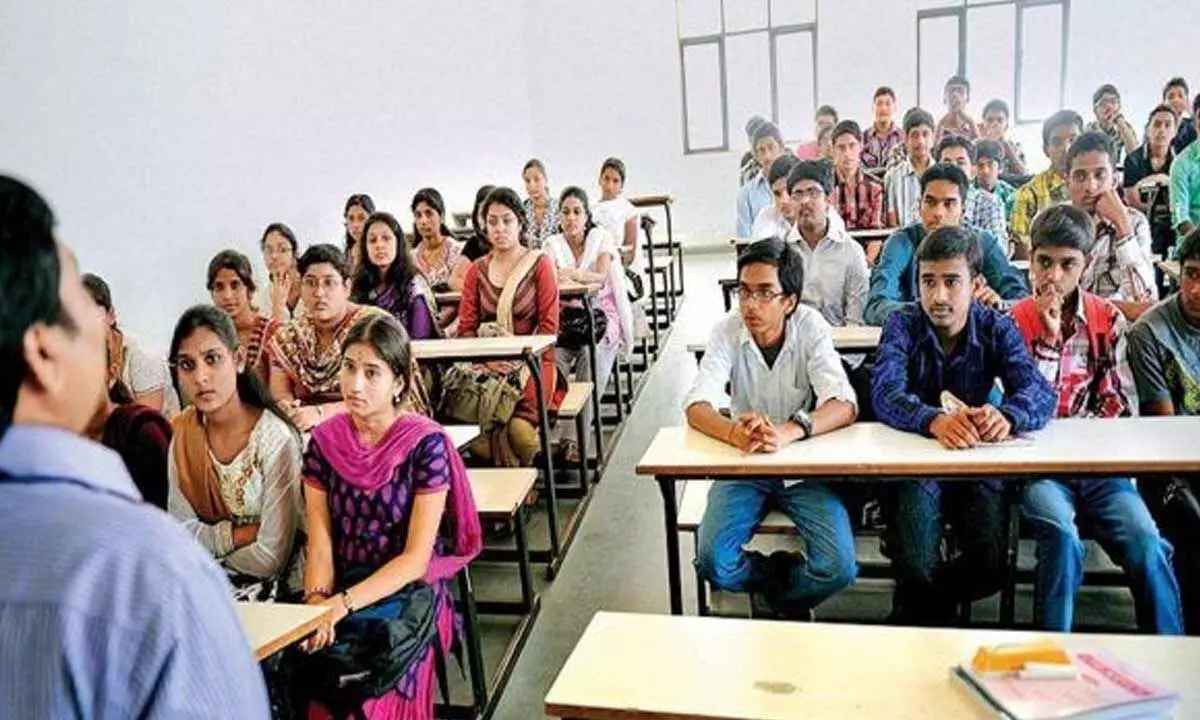Can students pursue two full-time degree programmes simultaneously?

Can students pursue two full-time degree programmes simultaneously?
The University Grant Commission (UGC) on Tuesday, announced that students can now pursue two different full-time degree programmes simultaneously, either from the same university or from two different universities and take up the course either in person, physical mode or online.
The University Grant Commission (UGC) on Tuesday, announced that students can now pursue two different full-time degree programmes simultaneously, either from the same university or from two different universities and take up the course either in person, physical mode or online. This gives a lot of flexibility, freedom and opens up a new realm of possibilities for Indian students to acquire multiple skills and qualifications at the same time.
Taking a cue from the announcement, Young Hans interacted with Prof (Dr) Dwarika Prasad Uniyal, Pro Vice-Chancellor (Development & Leadership) and Founding Dean, School of Economics & Finance. He is the former Dean of FLAME School of Business, FLAME University. He brings with him rich and varied experience of more than 25 years in premier academic institutions and industry. In an academic career spanning over two decades, Professor Uniyal taught at premier Business Schools like IIM Kashipur (where he was Assistant Dean of Exec Education and headed its Dehradun campus) MICA – Ahmedabad, SPJIMR – Mumbai and SP Jain School of Global Management – Dubai. Uniyal was also part of OP Jindal Global University as the Founding Assistant Dean of Jindal Global Business School.
Excerpts from an interview with Prof (Dr) Dwarika Prasad Uniyal
1. How will universities plan, schedule and ensure that the classes of students who have taken two-degree programmes do not clash with each other?
Foremost responsibility is of the student to pick up an additional programme which does not conflict with the main course. It has to be seen as the additional value and degree and ensure it does not compromise the main course or programme.
If it's an online degree, then the student can choose the timings which do not clash with the day programme (9-4 PM) or study during weekends.
Universities can be a bit more flexible in terms of attendance and course work for such students without diluting the rigour. If a student is enrolled in the same university in two courses, then the scheduling will be a huge issue as different schools/colleges of the same university have to align their time tables and it will surely create a logistics challenge. One can do morning and evening programmes and allow only those courses which do not have conflicting schedules.
2. Is this a practically viable approach?
Online and offline is possible, two offline courses across two different universities is possible only when schedules don't conflict, else it will lead to loss of learning and the whole exercise becomes a farce. Universities need to be watchful of that.
3. Will it be overbearing on the students who have taken two different degree programmes to study more? Will it take away the focus from one area?
It will surely be tough on them and they have to stretch their time and monetary resources. Hence they should only pick on their plate what they can chew, else it will be counterproductive. They also need to look at courses which will add value and improve their CV value.
4. Will this see a trend of more youngsters with a greater number of degrees and qualifications passing out of colleges?
Too early to say, as the industry will demand more and more cutting edge and new age skills, this trend will increase hence pressure will be on universities and EdTech firms to come up with courses which will increase the employability quotient of the graduates.
Look at the growth of platforms like coursera, Edex, Udemy or even blended courses offered by Upgrad, Talentedge, Greatlearning and one comes to know that there is a huge appetite for multiple certifications and courses as no university or courses can do complete justice to the demands of a 21st century professional job market.
Jobs are changing, skills are being upgraded and new careers are emerging hence it is a collective responsibility of industry, platforms, universities and the students to collaborate and create an individual profile and portfolio which does justice to the new job description.
5. How are the universities gearing up for this change? Are they up for it or against it?
Too early to say again as the notification has just come. one needs to look at the policy in detail and understand the fine print. But, they need to be ready in a few years time. It is a brilliant idea whose time has come now. They should embrace this challenge and become more relevant for their target audience.
What are the job prospects for students with two different degrees completed simultaneously? Will they get priority over others who have done only one degree?
As I understand, the second degree should be a complementary one and add value to the main degree. Two unrelated random degrees will not help at all. Job prospects will improve if one picks up a more skill led programme to compliment the main course.
For example a B.Sc Maths student can pick up courses in Computer Science and coding and analytics and that will add to their profile. A Psychology student can pick up other courses in HR or Marketing and make themselves more employable. A BBA student should pick up skill oriented courses so on and so forth.










